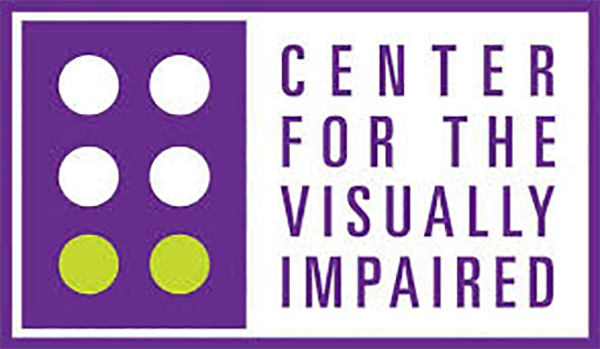Vision loss is often unrecognizable. Sometimes there are no obvious signs that someone is blind or has low vision, other than their use of the iconic white cane. But around us every day, people are dealing with the realities of vision loss due to conditions like macular degeneration or diabetic retinopathy. You may not notice their struggles; they move confidently through the world, as capable in their activities as any sighted person.
How did they get there?
For many, their first step to greater confidence and continued independence is CVI’s Low Vision Clinic. When Dianne B.’s macular degeneration began to progress and cause her greater difficulty, her ophthalmologist recommended that she visit CVI. At her clinic appointment, a specialized optometrist tested her range of vision to find trouble spots. Was her central vision blurry? Were there distortions or fuzziness? Knowing more about how macular degeneration was affecting her vision gave Dianne a greater understanding of how to monitor the condition and notice changes.
Dianne next met with our Occupational Therapist. Together they tested various vision aids, such as magnifiers, to find the right combination of tools to help Dianne keep up with daily tasks. With these new tips and techniques to use on her own, Dianne felt her confidence grow.

Thankfully, CVI Adult Services provided her the training she needed. Working with Abby, our Vision Rehabilitation Therapist, Diane learned to use her phone as an assistive device. Abby taught her how to use Siri, increase her phone’s font size, and take advantage of other accessibility features. Because of the technology class she took at CVI, Dianne can stay connected to her daughter.
“We talk every single day, for probably an hour. We’re close that way,” she says. Although the pandemic kept them from being together in person for three years, the smartphone skills Dianne learned at CVI helped bridge the distance between them.
As a senior living on a fixed income, Dianne was worried at first about whether she could afford the extra training. Thanks to our financial assistance fund, however, qualifying clients may pay as little as 10% of the cost of services, often less than $10 per class. “I was concerned about it,” says Dianne, “but the financial assistance helped cover the cost of the courses and devices I needed. It was such a blessing.”
CVI is proud to be a part of Dianne’s journey to gain confidence and continue enjoying her life with vision loss. If you or a loved one are experiencing vision loss and need assistance, we can help! To learn more about our services, click here or call at 404-875-9011.

